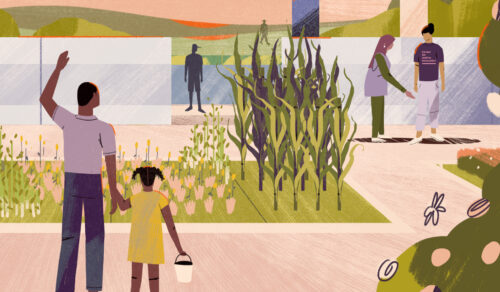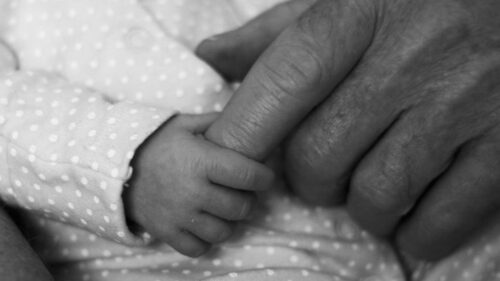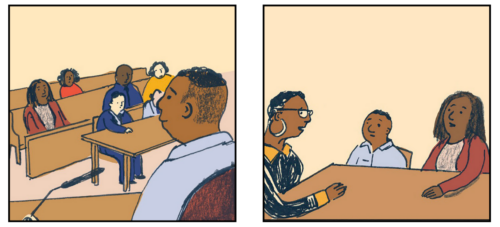Works directly with children and families, as well as with systems, to reduce and prevent system involvement, strengthen family relationships and interrupt intergenerational cycles of trauma.
The Family Court team works directly with children and families to reduce and prevent system involvement, strengthen family relationships and interrupt intergenerational cycles of trauma through its problem solving court-based operating programs. In addition to its operations, the Family Court team also supports systemic change, including through its support of the Family Justice Initiative. In partnership with the UCS, and the Office of the Governor of the State of New York, the Initiative seeks to forge a fair, equitable, and sustainable path forward for Family Court and its system partners to better serve all New Yorkers. The Center’s role is to develop a broad vision for what makes an effective family-serving system and lead the process to create a comprehensive plan to support that vision.
Programs
Child Welfare Initiatives
Strong Starts Court Initiative
The Strong Starts Court Initiative is a Family-Court based, specialized, intergenerational collaborative approach to handling abuse and neglect cases involving children birth to three years of age. Read more.
Parent Initiatives
Parent Support Program
The Parent Support Program works to empower non-custodial parents to find and maintain employment and increase child support payments. Addressing roadblocks to child support payments has ripple positive effects, such as improving child well-being and parent-child relationships.
Young Parent Initiative
Young Parent Initiative is a pilot project of the Center to address the needs of young parents so that they can provide social and economic supports for their young children.
Parent Support Hub
The Parent Support Hub will build the clinical capacity of the Strong Starts Court Initiative and enhance collaboration and synergy across Center programs that interact with parents of young children.
Youth Initiatives
Families First Court Initiative
The Families First Court Initiative (Families First) provides Family Court-involved youth ages 12-18 and their families with intensive supports on abuse and neglect, juvenile delinquency, persons in need of supervision, and order of protection matters, in order to reduce the use of congregate care and prevent further system involvement.
Westchester Court Education Initiative
The Westchester Court Education Initiative is located on-site in family court and consists of two part-time education advisors with master’s-level expertise in education methodology, conflict resolution, child development, and federal and New York State laws. These education advisors consult with family court judges regarding the educational status of court-involved children and work collaboratively with parents/guardians to assist children in articulating and achieving educational goals.
Bronx Child Trauma Support
The Bronx Child Trauma Support (BCTS) provides evidence-based and trauma-informed psychotherapy to children and adolescents ages 3-17 who are victims of and/or witnesses to violent crime. The Bronx Child Trauma Supports services are designed to reduce post-traumatic stress reactions, minimize the potential for children to be re-traumatized by involvement in court proceedings, promote healing, and interrupt intergenerational cycles of trauma and violence.
Family Justice Initiative
The New York State Unified Court System, with the Center, and in partnership with the Office of the Governor of the State of New York, launched the Family Justice Initiative: Court and Community Collaboration (FJI or the Initiative). Building on the reports and analyses that have documented statewide challenges across all case types in Family Court to date, the Initiative seeks to forge a fair, equitable, and sustainable path forward for the Court and its system partners to better serve all New Yorkers. The Initiative is solutions-focused, prioritizes areas for improvement, identifies promising programs, and explores new ideas to strengthen families, reduce unnecessary system involvement, and break intergenerational cycles of trauma.
The Center’s role is to support a strategic planning process to develop a broad vision for what makes an effective family-serving system, as well as a comprehensive plan to support that vision.




